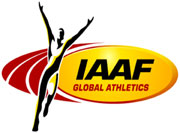Athletics
cctv.com 07-16-2004 18:50
Athletics is one of the most popular sports around the world. Its events are the oldest form of organised sport, and are associated with the simplest physical activities 鈥�running, throwing a stone, surmounting an obstacle. These activities gradually evolved into sports events such as running, jumping and throwing events.
Athletics is divided into two main categories: events that take place inside the Stadium, and events that take place outside the Stadium such as the Marathon and road walk.
ATHENS 2004 Athletics
During the ATHENS 2004 Olympic Games, Athletics events will be staged at the Athens Olympic Stadium in the Athens Olympic Sports Complex (OAKA), with the exception of the Marathon, the Road Walk events and the Shot-put that will be held in the Ancient Olympia Stadium. Competition will take place over the span of 11 days from August 18 to 29 (rest day on August 19) .
Marathon
In the ATHENS 2004 Olympic Games the Marathon will be run on its historic course, starting outside the Marathon stadium in the town of Marathonas and finishing in the Panathinaiko Stadium.
History
From the very first Olympic Games in 776BC to the revival of the modern Games in 1896, Athletics has always been part of the Olympic Games. It is identified with Greece鈥檚 centuries-old history and it is no accident that the Greeks list Athletics as a 鈥榗lassical sport鈥� In 776 BC, races were run in a 28.5 m wide stadium and distances such as the 192.27 m race were the forerunners of the 200 m event of the modern Olympic Games.
The ancient Olympic Games were held every four years at the stadium of Olympia in the ancient district of Elis, on the first full moon after the summer solstice (roughly in mid-July). Starting in 776 BC, 290 Olympic Games were held until 393 AD, when Emperor Theodosius A鈥�abolished the Games claiming that they were 鈥減aganistic鈥�
In the 19th century, Greek intellectuals, Evangelos Zappas and Demetrios Vikelas, worked towards the revival of the Olympic Games. The French Baron, Pierre de Coubertin, is credited with reviving the Olympic Games by advocating the marriage of sports and Greek classicism and leading the way to the first modern Olympic Games held in 1896 in Athens.
The 1896 Olympic Games took place over a period of 10 days. A total of 311 athletes (250 of which were Greeks), from 13 countries participated. The Athletics events were the following: 100m, 1,500m, 110m hurdles, Marathon, long jump, triple jump, pole vault, discus, shot put and high jump.
|

|
|
|
On July 17, 1912 鈥�two days after the final race in the 1912 Olympic Games 鈥�a conference took place in Stockholm in order to set up the International Association of Athletics Federations (IAAF). Seventeen countries were represented at this historic meeting: Australia, Austria, Belgium, Canada, Chile, Denmark, Egypt, England, Finland, France, Germany, Greece, Hungary, Norway, Russia, Sweden and the United States of America. There was an urgent need for an international managing body for Athletics, responsible for holding international Athletics meetings, including the Olympic Games. An international code of rules and regulations had become essential, as were an internationally acceptable definition of amateurism and an authentic list of world records.
Although this Stockholm meeting may have been exploratory, the IAAF records describe it as the first conference. A year after the first conference, in Berlin in 1913, the conference ratified its founding charter. Thirty-four countries were on the initial list of members.
A Swede, Sigfrid Edstrom, was elected as the first President, and Kristian Hellstrom was appointed as Honorary Secretary. At the third Conference, in Lyon, France in 1914, the first technical clauses relating to international competitions were presented for approval, and the members were prompted to adopt similar clauses for competitions in their own countries.
At the 1924 Olympic Games in Paris, the first five events for women (100 m, 800 m, 4 x 100 m, high jump, and discus) were included on the programme.
Since 1999, IAAF, with headquarters in Monaco, has 210 members. The present President of the IAAF is Lamine Diack (Senegal) and the present General Secretary is Istvan Gyulai (Hungary). At the 43rd conference, held in Edmonton (Canada) in 2001, IAAF was renamed as the International Association of Athletics Federations.
Source:The official website of the ATHENS 2004 Olympic and Paralympic Games
Editor:Wang Source:CCTV.com